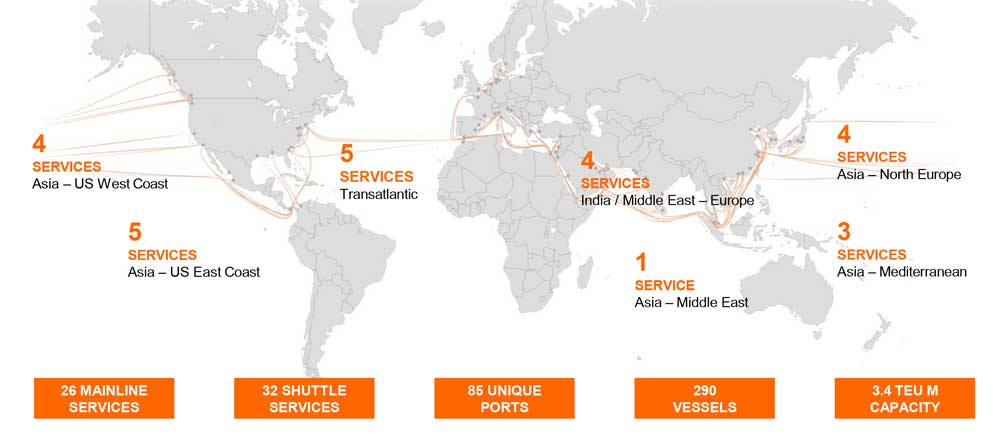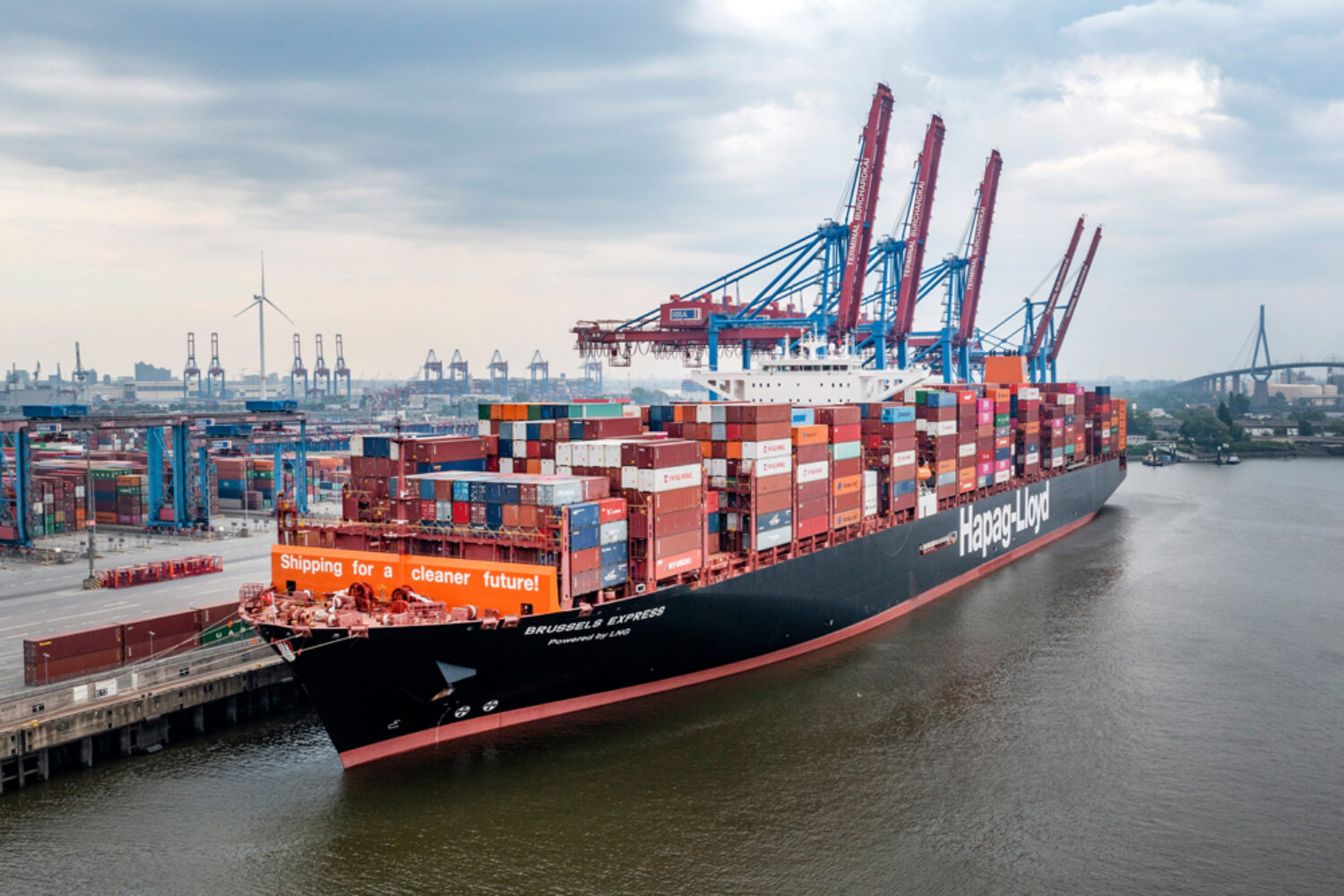The “Gemini” alliance between Hapag-Lloyd and Maersk will cost Hamburg cargo in future. Bremerhaven and Wilhelmshaven, on the other hand, are likely to benefit.
The reason for this is the alliance announced by the German shipping company with the Danish No. 2 in global liner shipping. In the “Gemini Cooperation”, the two new partners are focusing on 26 joint services on the main routes, for example between Asia and Europe. Priority will be given to twelve hubs worldwide where Maersk or Hapag-Lloyd are involved in terminals. [ds_preview]
However, Hamburg is not one of them – and will therefore lose cargo. In an online briefing, Rolf Habben Jansen, CEO of Hapag-Lloyd, put the order of magnitude at around 10% of the previous throughput. With 2.1 million TEU handled by Hapag-Lloyd alone last year, that would be around 210,000 TEU.
Hapag-Lloyd focuses on ports other than Hamburg
Instead, the two “Gemini” partners want to ship considerably more containers via Rotterdam and the ports of Bremerhaven and Wilhelmshaven in future. On the Weser, Maersk has a stake in the North Sea Terminal (NTB, with Eurogate) via a so-called “dedicated terminal” for the preferential handling of ships.
In Wilhelmshaven, Hapag-Lloyd bought Maersk’s sister company APM Terminals’ 30% share in the Jade-Weser Port container terminal at the end of 2021. Two Far East services are already calling at the Jade instead of traveling up the Elbe to Hamburg as in the past.
“We will load around 20% more there,” says Habben Jansen. The bottom line is that the German ports will benefit from the “Gemini Corporation” – only Hamburg will not. The Hapag boss does not see the plans as a direct reaction to the planned acquisition of a stake in terminal operator HHLA by competitor MSC. Rather, the aim is to set up a reliable and efficient network with punctual port calls together with Maersk. “And that works best in ports where we have control of the terminals.”
However, it is also no secret that Hapag-Lloyd itself wanted to join HHLA. However, the city was not prepared to grant the shipping company more than 50%. Instead, the Senate arranged the deal with MSC. Although the Swiss-based Aponte company, the No. 1 among all liner shipping companies, has promised investments and an increase in throughput to around 1 million TEU by 2030, this hoped-for growth could now be lost again by “Gemini”.














